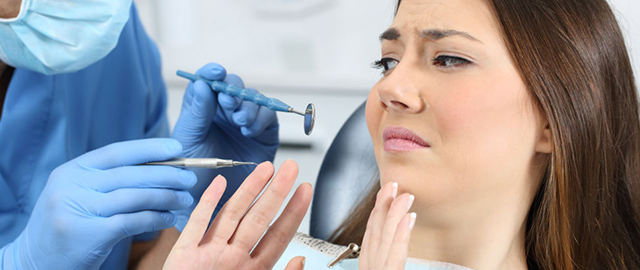List of Major Reasons Behind Bleeding Gums!

You may ignore or overlook the fact that your gums bleed when you clean or floss your teeth. But, on the other hand, gum bleeding reveals an underlying issue. Gum bleeding can be caused by various factors, including brushing too hard, pregnancy, injury, and inflammation. Gum inflammation can cause swelling, redness, and pain, indicating diseases like gingivitis or periodontitis. There are multiple reasons behind gum bleeding, which further require bleeding gums treatment. Also, the following are some of the most common reasons for bleeding gums:
- Not brushing teeth daily
- Using an overly hard or stiff toothbrush
- Use certain medicines like blood thinners, aspirin, or ibuprofen
- Palate or mouth injuries, including burns and cuts
- Having early gum disease or gingivitis
Try the following remedies to stop gum bleeding and prevent it from recurring.
- Maintain proper dental hygiene
When plaque builds up along the gum line, the gums become sensitive and bleed. Gum bleeding may indicate a lack of dental hygiene. Brush your teeth at least twice a day and floss once a day to improve your oral hygiene. If you don’t brush or floss frequently enough, the germs can spread and lead to tooth decay or gum disease.
Note: In the case of sensitive gums, you can opt for an extra sensitive or soft toothbrush.
- Using mouthwash
Antibacterial mouthwashes can be used to treat and prevent bleeding gums. To relieve bleeding gums and swollen gums, they eliminate bacteria & reduce inflammation. In addition, gingivitis, a major cause of bleeding gums, can be treated and prevented with mouthwash.
- Apply Ice
Apply a cool compress tiny ice cube to relieve swollen, bleeding gums. Ice packs are very useful for minor oral injuries such as cuts and scrapes that cause swelling. Apply a cold cloth or ice pack to your gums several times a day, with rests in between. Some people may consider seeing a doctor if the bleeding does not stop.
Must read: Benefits of Almond
Foods to Avoid During Bleeding Gums
- Avoid Smoking
According to a dentist, smoking is a primary cause of gum disease. Because smoking weakens the immune system, the body is less prepared to fight against bacteria that usually stick to the gums. Smoking makes it more difficult for the body to recover its tissues once the gums are damaged. Quitting smoking is good for the overall body. It improves the health of a person’s mouth & gums. After quitting smoking, many people see an immediate improvement in their oral health.
- Avoid Sugary Food
Gingivitis and bleeding gums can be caused by eating too many starchy, packaged foods. Refined bread, cakes, cookies, and potato chips are starchy, processed foods. Sugar is formed when starchy foods stick to teeth and gums. This action can cause gum inflammation, bleeding, and a rise in tooth decay.
Foods You Must Eat to Prevent Bleeding Gums
- Eating crunchy vegetables
Between meals, crunchy veggies like celery and carrots can help keep teeth clean. Their crunchiness can help in the removal of food residue from the teeth. They also have little sugar and carbohydrate content, so they don’t cause gum problems or tooth decay.
- Increase Vitamin C intake
Vitamin C-rich meals can boost your immune system and help in the battle against gum problems that cause bleeding gums. In contrast, if you have gum disease, not receiving enough vitamin C in your food may cause bleeding. Even if you maintain good oral hygiene, a vitamin C deficiency might cause gum bleeding. Vitamin C is an antioxidant that builds connective tissue and preserves the lining of your gums, so make sure you receive enough every day.
To support healthy teeth, healthy gums are required. When brushing, don’t forget to pay attention to the bleeding. By following the tips outlined in this blog, you can give your oral health the boost it needs and stop bleeding gums. If you are not sure of the actual reason for your bleeding gums, you should visit your dentist as soon as possible.
Bleeding gums could be an indication of a periodontal or gum disease and should be taken care of right away. While visiting a dentist is the first thing to do, adding certain foods to your diet can heal your gums and improve your oral health. Dentist, Dr. Mini Mony, advocates adding these foods to your diet to heal bleeding gums.
Vitamin C-rich Foods
Vitamin C rich foods: Vitamin C deficiency often causes your gums to bleed. So include a lot of citrus fruits like oranges and lemons to your diet to maintain healthy tissue in the gums and encourage healing. Vegetables like cabbage and broccoli are also rich in vitamin C.
Apricots
Vitamin A deficiency can also contribute to sore and bleeding gums. Apricots are a good source of beta-carotene which converts to vitamin A in your body. Adding apricots to your cereals and salads can be a good way to up your vitamin A intake. Spinach and carrots are also good sources of beta-carotene.






